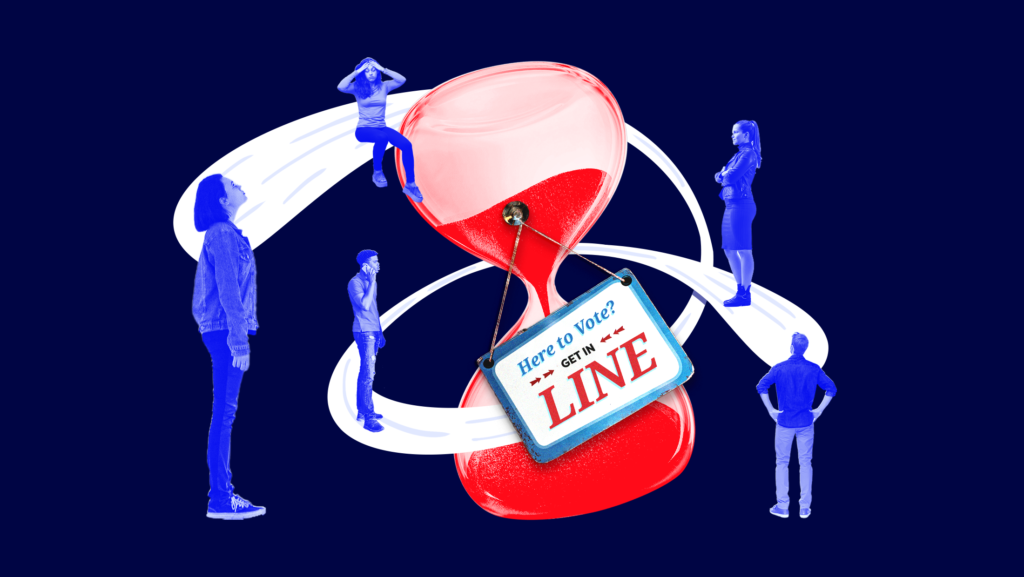Voters Don’t Have To Stand for Long Lines

After heroic efforts by voters, activists and local election officials to make the 2020 election a success during a global pandemic, the forces of voter suppression are striking back hard.
Republican legislatures in Georgia, Florida, Texas and elsewhere are passing or considering legislation to reduce the number of polling places, decrease Election Day poll hours and make it harder to vote by mail. In total, the Brennan Center has identified 14 states that have enacted laws this year that make it harder for Americans to vote, and at least 389 additional restrictive voting bills in 48 states have been introduced in their 2021 legislative sessions.
As a result, American voters are poised to face unreasonably longlines just to exercise their constitutional right to vote. Not surprisingly, the impact of these vote-suppressing laws falls disproportionately on voters of color, working people and seniors who depend on accessible polling hours and locations. It’s a disgrace.
Scenes of voters in lines stretching for blocks outside polling places are fast becoming a regular feature of Election Day TV coverage. The problem expanded rapidly before 2020 — studies estimate that nearly 3 million voters waited more than 30 minutes to vote in 2018 and that more than 500,000 Americans were denied the ability to vote because of long lines, with Black and Hispanic communities disproportionately impacted. It’s voter suppression, pure and simple.
No democratic country should stand for a status quo where voters have to stand in line for hours.
Sprawling lines were the norm in Mississippi, Georgia and a handful of other states last year in the places that refused to expand voting from home and early voting.
No democratic country should stand for a status quo where voters have to stand in line for hours.
That’s why I’m introducing People Over Long Lines (POLL) Act to require state governments to ensure every voter has the opportunity to vote within 30 minutes, a time that a bipartisan Presidential Commission on Election Administration decided should be the maximum amount of time any voter should have to wait. My legislation requires states to file public plans detailing how they will ensure voters can cast ballots with waiting times of less than 30 minutes, and it institutes audits by the Election Assistance Commission to determine how many voters face longer waits. To ensure governments can meet those new rules, the bill provides $500 million to help states reduce wait times.
In addition, the POLL Act does not leave enforcement of its requirements up to political judgment at the U.S. Justice Department. The POLL Act gives American voters the power to fight long lines by allowing them to file a lawsuit if they wait in unreasonably long lines. If their suit is successful, they are entitled to receive $50 for waiting longer than 30 minutes and an additional $50 for every hour after that. Penalties would increase if a court determines long lines were the result of intentional voter suppression or reckless disregard for election plans, and court costs are covered.
I’m working hand in hand with my Democratic colleagues on the larger package of election reforms in the For the People Act, which will come to a vote soon. I’m introducing this bill, because going after long lines is a simple, popular and real change that everyone in Congress, regardless of party, should support. Simply put, no one should be shut out of the democratic process just because they don’t have hours to stand in line to vote.
In Oregon, fair, secure and convenient voting has been the norm for decades, and it is resoundingly popular, resulting in higher voter turnout than happens in many other states.
I’m calling on voters to tell their representatives it’s high time to end long lines for good because voting shouldn’t be a war of attrition.
Senator Ron Wyden represents Oregon in the U.S. Senate.